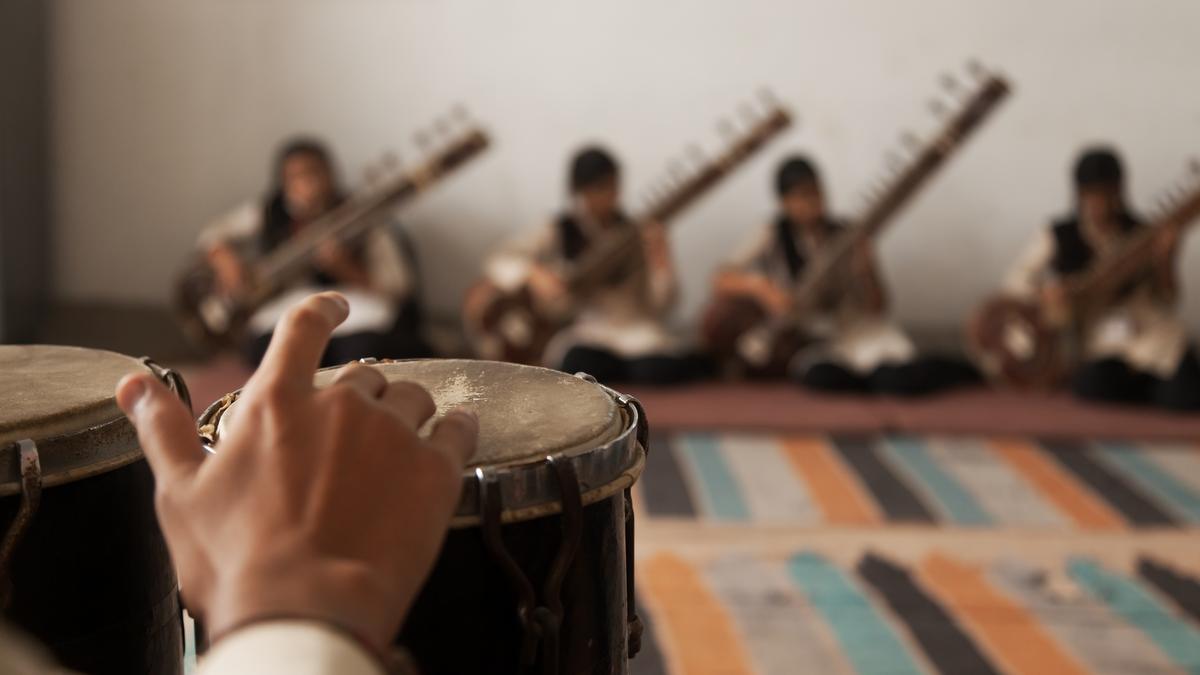Table of Contents
Introduction:
The power of music in our lives cannot be understated. From ancient times to the present day, music has played a crucial role in human evolution and daily activities. The recent celebration of World Music Day on June 21st reminds us of the significance of music in shaping our societies and individual experiences.
Evolution of Music:
Research indicates that our sense of rhythm and musicality can be traced back to our primate ancestors. A study by Hattori and Tomonaga showcased how chimps responded to rhythmic pieces by dancing in tune, demonstrating a connection to our early beginnings. As humans evolved, so did our ability to create music. The discovery of a flute made from an animal bone 40,000 years ago marked a significant advancement in our musical capabilities.
Musical notations, such as ragam and talam, were established to organize musical compositions. Europe and the Middle East developed spaced notations like ‘do, re, mi,’ while India adopted the notes ‘sa, re, ga, ma, pa, da, ni.’ These notations continue to influence musical compositions and performances across different genres.
Diversity of Musical Genres:
Music is not limited to classical compositions or specific styles. From folk songs to jazz, qawwali, and film music, each genre offers a unique experience. A report by Allison Parshall in ‘Scientific American’ highlights the universal appeal of folk songs due to their tone and melody. Variety in musical genres allows individuals to explore and appreciate different forms of musical expression.
Health Benefits of Music:
Listening to music has been linked to various health benefits. Institutions like Johns Hopkins University emphasize the positive impact of music on brain health. Music can enhance attention, memory, mood, and overall quality of life. For students, engaging in music learning or listening can boost cognitive abilities. Similarly, older adults may benefit from music to stave off age-related issues.
Conclusion:
As we reflect on the evolution of music and its diverse genres, it is evident that music plays a vital role in our lives. Whether it is a traditional composition or a contemporary hit, music has the power to uplift our spirits and improve our well-being. By exploring different musical genres and attending music festivals, we can continue to appreciate the beauty and benefits of music in our daily lives. Let us embrace the universal language of music and let it enrich our souls.
The Evolution of Music: From Chimps to Humans
Music has been an integral part of human culture and society since ancient times. The recent celebration of World Music Day on June 21, 2024, serves as a reminder of the significance of music in our lives. Research conducted by Hattori and Tomonaga has shown that even chimpanzees display a sense of rhythm and movement when exposed to music, highlighting the deep-rooted connection between music and humans.
Historical Evolution of Music
The origins of music can be traced back to the Old Stone Age, where humans began speaking and later progressed to singing. The use of musical instruments dates back to around 40,000 years ago, with the discovery of a flute made from an animal bone. The development of musical notation systems, such as the European ‘do, re, mi, fa, sol, la, ti’ and Indian ‘sa, re, ga, ma, pa, dha, ni’ notes, further enriched the musical landscape.
Ragam and Talam
India has a rich musical heritage, with classical music traditions dating back to Vedic times. The use of swaras and ragas in compositions like ‘Sobillu Saptaswara’ by M S Subbulakshmi exemplifies the intricate musical nuances of Indian classical music.
Benefits of Music
Listening to music has been shown to have various positive effects on health and well-being. According to Johns Hopkins University, music can improve attention, memory, mood, and overall quality of life. Music learning has also been linked to cognitive benefits, making it a valuable tool for students and elderly individuals alike.
Music Academies in India
India boasts a vibrant musical scene, with numerous music academies promoting various musical styles such as Carnatic, Hindustani, and Western music. These academies hold festivals and concerts featuring both established musicians and emerging talents, providing a platform for musical growth and appreciation.
Music transcends boundaries and languages, offering a universal form of expression and connection. Whether it is classical, folk, jazz, or film music, the power of music to evoke emotions and uplift spirits remains unparalleled.
Mutiple Choice Questions
-
According to the passage, when did humans start singing and playing music on instruments?
A. 10,000 BCE
B. 2.5 million years ago
C. 40,000 years ago
D. 9th Century BCE
Correct Answer: C
Explanation: The passage states that humans started singing and playing instruments about 40,000 years ago. -
What were the notes used in Europe and the Middle East for singing and instrument-playing hymns?
A. ‘sa, re, ga, ma, pa, da, ni’
B. ‘do, re, ma, fa, po, la, ti’
C. ‘sa, ni, ga, re, pa, da, ma’
D. ‘pa, ma, sa, re, ga, da, ni’
Correct Answer: B
Explanation: The passage mentions that in Europe and the Middle East, spaced notations like ‘do, re, ma, fa, po, la, ti’ were used for singing and instrument-playing hymns. -
According to the Johns Hopkins University site, what are some benefits of listening to music?
A. Improved attention, memory, mood
B. Improved taste buds
C. Better eyesight
D. Stronger muscles
Correct Answer: A
Explanation: The passage mentions that listening to music can improve attention, memory, mood, and quality of life, as stated on the Johns Hopkins University site. -
What type of music does the passage suggest can help elderly people avert age-related problems?
A. Classical music
B. Jazz
C. Qawwali
D. Folk songs
Correct Answer: D
Explanation: The passage suggests that music learning or listening to folk songs can help elderly people avert age-related problems. - When was the annual World Music Day held?
A. June 21, 2024
B. June 21, 2020
C. June 21, 2019
D. June 21, 2018
Correct Answer: A
Explanation: The passage mentions that the annual World Music Day was held on June 21, 2024.
Brief Summary | UPSC – IAS
Listening to music has been shown to improve health. Music has evolved from ancient times, with rhythms even impacting chimps. Humans began singing during the Old Stone Age and playing instruments around 40,000 years ago. Musical notations were established in Europe and the Middle East during the 9th Century BCE. In India, musical notations have been traced back to Vedic times. It is believed that listening to music can improve memory, mood, and quality of life. Attending music festivals and listening to various genres can be beneficial for all ages. Overall, music has numerous benefits for both physical and mental well-being.

